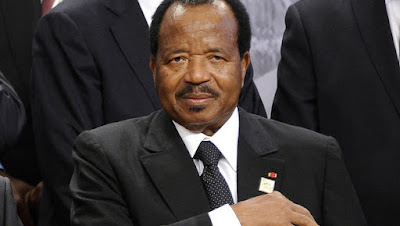By Femi
Aribisala
THINGS have not been going according to plan for President Buhari. For the last four months since his famous victory, the president has been engaged with a battle royal with the very people who put him in power. In order to win the election, Buhari had to form an alliance with wily politicians of the old-school; men seasoned at getting their hands dirty and adept at manipulating the system to power-political advantage.
THINGS have not been going according to plan for President Buhari. For the last four months since his famous victory, the president has been engaged with a battle royal with the very people who put him in power. In order to win the election, Buhari had to form an alliance with wily politicians of the old-school; men seasoned at getting their hands dirty and adept at manipulating the system to power-political advantage.
*Femi Aribasala
Buhari had tried to make
it without these men in the past, but without success. On his third
attempt in 2011, he opted for Tunde Bakare as his running mate. Bakare
was not a politician but a man of known integrity: a radical Christian pastor
to boot. Nevertheless, Buhari still lost by 10 million votes to the
lesser-known Goodluck Jonathan.
In 2015, he chose Yemi
Osinbajo as his running-mate, another man of integrity and, yet again, a
Christian pastor. But there was something different this time
around. He agreed to dine with known political devils. He
formed an alliance with the very political elite he had long despised.
These are men who know the crooked ropes of the Nigerian political
system. They know how to finance a nationwide campaign with
funds obtained magically; no questions asked. They know how to buy
and manipulate the press. They know how to conjure votes with the
sleight of hand.
With
their help, Buhari finally became president against all the odds. The
million naira question then became how he would rule alongside these strange
bedfellows. How is he going to be their anointed president without
becoming one of them? How is he going to be president without becoming
another politician? How can he become president through the help of these
men without becoming hostage to them in his victory?
Buhari
has kept Nigeria
On
30th September, 2015, Buhari was forced to accept he could not go it
alone. On that day, he finally decided to join the APC politically as its
president. Even more significantly, he finally agreed to join forces as
president with those he had despised all his political life; the PDP. On
that fateful day, President Muhammadu Buhari jettisoned his earlier
druthers. He relinquished his much-ballyhooed “change” programme and
became reluctantly a full-fledged old-school politician.
*President Buhari and Senate President, Saraki
Buhari’s
first mistake was to presume his campaign idealism could carry him through his
presidency. Having won the election comfortably, the president decided
the decent thing to do was to allow the legislators in the National Assembly to
choose their own leaders without interference from Aso Rock.
This
was a departure from the procedure of his predecessors and his naïve
supporters praised him for it. This was the Buhari they voted for; a man
who would breathe new life into the clogged political system. But the
whole thing backfired disastrously as the president became a victim of his own
attempted saintliness.


















